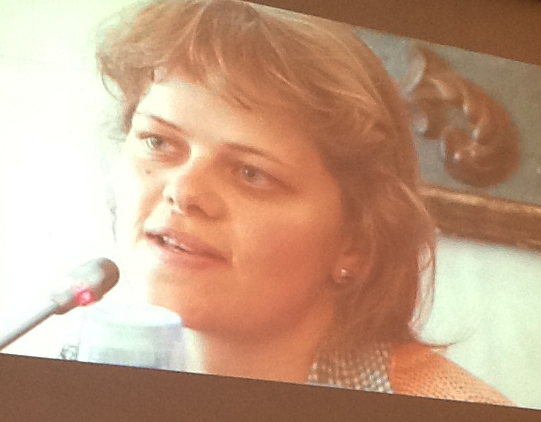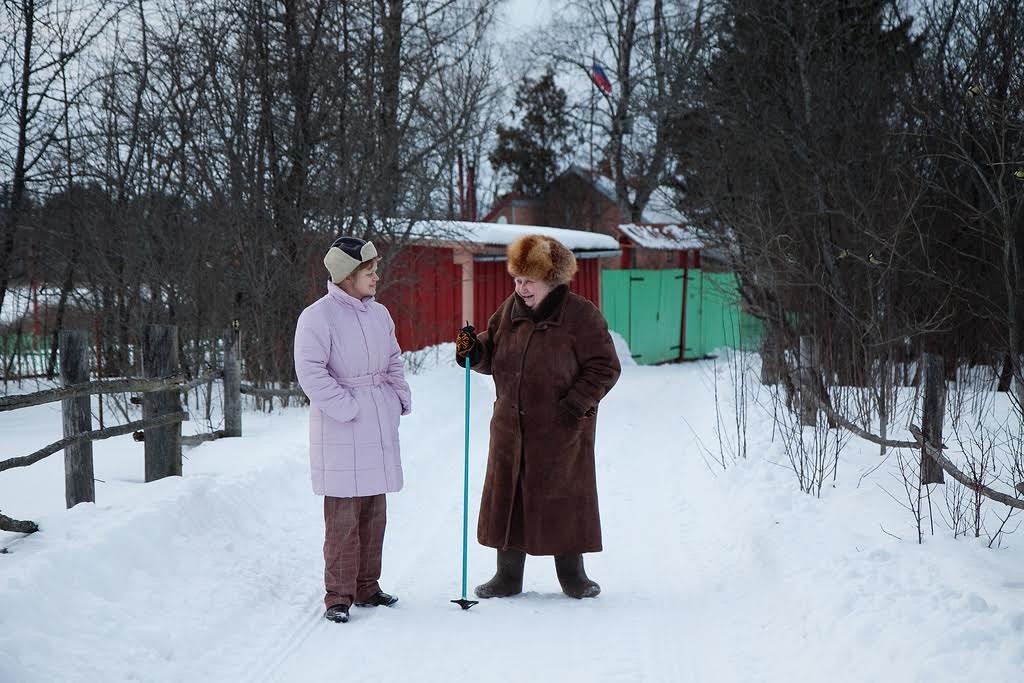BBG Watch Commentary
INTRODUCTION: In Russia, journalists and opposition leaders who run afoul of the Kremlin or the business mafia, end up dead. Case in point: Anna Politkovskaya, murdered in 2006, and former deputy prime minister Boris Nemtsov, murdered in 2015. For a long time, U.S.-funded Radio Free Europe / Radio Liberty (RFE/RL) was a refuge for the most talented and brave Russian journalists who would not be intimidated by any government. But something has changed in recent years under RFE/RL’s own management and especially its oversight federal agency, the Broadcasting Board of Governors (BBG). Young and older, talented and fearless journalists are being pushed out from RL’s Russian Service, and sometimes even their names cannot be mentioned in RFE/RL programs.
No doubt that in order to avoid scrutiny, President Putin has closed down virtually every media outlet of significance in Russia critical of his rule, but not RFE/RL. He also shut down pro-democracy think tanks and civil society institutions receiving any kind of assistance from the West, as well as some which don’t but represent a democratic threat to the Kremlin. Russian state media is engaged in a major propaganda operation targeting both domestic and foreign audiences through its state TV channels, RT and SPUTNIK. The Russian government is also trying to infiltrate and bribe political parties in Europe and turn European countries against the United States, the EU and NATO.
How is it then that U.S. government-funded RFE/RL is still allowed to operate a large news bureau in Moscow? Observers of the weak U.S. response to Putin’s propaganda offensive have been asking that question for years. Is it because the management of Russian Service of Radio Liberty plays it safe, practices self-censorship and fires its best reporters who might annoy Vladimir Putin? Why has RFE/RL been spared? Allowing a weak Radio Liberty to have a bureau in Moscow may help the Russian government to protect its own much more extensive RT TV operations in the West.
The Broadcasting Board of Governors’ response to events in Ukraine through RFE/RL and VOA has been “feeble,” former BBG member and former Radio Liberty director S. Enders Wimbush told the Senate Foreign Relations Committee. A new strategy is needed.
A young and successful Russian investigative reporter Anastasia Kirilenko is one of many who believe that the United States indeed lacks a strategy for responding to Putin’s propaganda war. After being dismissed last year by the previous management of Radio Liberty’s Russian Service, even her name could not be used in new Radio Liberty programs despite her impressive work to uncover the Kremlin’s corruption secrets.
Earlier in her reporting for RFE/RL, Anastasia Kirilenko interviewed Marina Salye, a Russian politician who in 1992 headed a special commission in St. Petersburg that investigated Vladimir Putin, then chairman of the city’s Foreign Relations Committee, and accused him of corruption. It was one of Radio Liberty’s major journalistic accomplishments, but Kirilenko said there was no particular management support for the interview. Now shunned by RL, Kirilenko is being published in the West and even by some of the more independent media in Russia. Her colleague, Kristina Gorelik, a highly-respected human rights reporter, was also fired by Radio Liberty despite being a target of vicious anti-Semitic online attacks by Russian ultra-nationalists.
UPDATE: While Anastasia Kirilenko is still unwelcome at Radio Liberty, and Kristina Gorelik, still has no job, since last week the Russian Service has a new director in Prague, the Czech Republic, where RFE/RL has its headquarters. Since September 2015, the Broadcasting Board of Governors has new CEO and director who has made some personnel changes in Washington. RFE/RL, however, still has no permanent president, and BBG has no strategy for responding to Putin propaganda, Anastasia Kirilenko told BBG Watch. But perhaps as a sign of new BBG CEO John Lansing’s growing managerial influence, VOA Russian Service recently interviewed Anastasia Kirilenko while she was being ignored by Radio Liberty. The new director of RL Russian Service since last week is experienced journalist Andrei Shary.
In a wide-ranging online conversation Anastasia Kirilenko describes how, in her view, Radio Liberty lost its way.
CONVERSATION WITH FORMER RADIO LIBERTY INVESTIGATIVE REPORTER ANASTASIA KIRILENKO – PART I
A Putin Corruption Reporter Too Radical For Radio Liberty
QUESTION: What did you do for Radio Liberty after moving to Paris and what event led to you being fired by the Russian Service management?
ANASTASIA KIRILENKO: In March 2015, I recorded an interview with Maxim Freidzon in New York. Maxim Freidzon is a businessman who had filed a federal racketeering lawsuit in the Southern District of New York against OAO Gazprom and OAO Lukoil. Freidzon claimed that in the 1990s he was forced to give bribes to Vladimir Putin through one of Putin’s assistants. The assistant might might have kept the money for himself, but Freidzon doubted that was the case. Freidzon gave similar interviews to other Western media, but he asked me to wait with making our interview public on Radio Liberty until June. Through some confusion, RL posted the interview on the website in late May and Freidzon was not happy about it. The management of the Russian Service accused me of lack of professionalism, removed the interview claiming that Freidzon did not agree for it being published, and that it was my fault. Later, the management removed my name from the list of freelance contributors on Radio Liberty’s Russian website.
However, not much later the story Freidzon told me in our interview was reported not only by Western media but even by local media in Russia, by the so-called “moderate” outlets such as Vedomosti, RBK, TV Rain, Time, etc. The revelations were sensational, but they were true. Of course, Radio Liberty’s management will deny that any censorship was involved. They might say that I’m “too radical.” But it’s not my problem if the reality is “radical,” and I want to report on and reflect the reality as it is, and not something else. BBC One Panorama has scheduled a program on “Putin’s Secret Riches” for Monday, January 25, 2016. One of those who knows how President Putin accumulated his riches and where they are hidden is Maxim Freidzon. His story is not only about bribes but also about Putin’s proxies keeping his fortune, and also about their money laundering operations.
QUESTION: What do you think of Radio Liberty now? Does it have a future in Russia? Is it still needed?
ANASTASIA KIRILENKO: Radio Liberty that is not afraid to report the truth is definitely much needed in Russia. Putin’s strategy since 1991 when he was first in Saint Petersburg and later when he became the President of the Russian Federation was to control the media. He signed laws that restrict freedom of the press. Even moderate media like TV Rain Channel can be shut down brutally at any moment.
When it comes to Radio Liberty, the United States needs to have a real strategy. In the Soviet era, the strategy was clear–-it was the Cold War and the U.S. government did not care much what the Soviet authorities said about Radio Liberty’s reporting, what Stalin would say about our reporting. Now the reality is different. Radio Liberty and other media in Russia engage in self-censorship in order not to be banned or shut down by Putin.
QUESTION: How does self-censorship work?
ANASTASIA KIRILENKO: How to cover Russia without being intimidated by threats or being mislead by propaganda is not only a problem for Radio Liberty, but for every other media in the world. How to report on accusations that those in power running a huge country are gangsters and kleptocrats, since there is abundant data to support such accusations? Shall we give them and the media they control a full freedom to spread their point of view unchallenged or should we expose their lies?
Radio Liberty wants to play it safe. Somebody in RL management once told me: “We can’t publish it, because Mr. Putin has already denied it.” Shall we discuss every day at Radio Liberty, as we do now, what Mr. Putin told us he thinks about the West as his and Russia’s enemy, all this Soviet/Russian blah-blah-blah since 1917? Or shall we report that Mr. Putin is hiding his fortune through proxies in the West and avoiding effective sanctions?
It’s a question of strategy for U.S. taxpayer-funded Radio Liberty, and of course we have to think about the future. If Mr. Putin closes down the Radio Liberty bureau in Moscow, there can still be RL coverage, as in the Soviet era, similar to what we do for countries like Iran where independent journalism locally is dangerous or impossible. But in any case, Radio Liberty should remain independent and free of any censorship or any self-censorship, otherwise Radio Liberty journalism does not make much sense.
QUESTION: You were not the only Radio Liberty journalist to be fired recently by the Russian Service management. What was your reaction to RL’s human rights reporter Kristina Gorelik’s firing? What do you know about anti-Semitic attacks on her being posted online by ultra-nationalists? Do you support her?
ANASTASIA KIRILENKO: Every Jew in Russia is a target of still existing anti-Semitism. I’m not Jewish, but it also happened to me. Someone yelled at me when I was singing some songs in Hebrew that I had learned from a Jewish friend. Of course, as a journalist, Kristina Gorelik was much more exposed to such abuse. She has never complained to me. She was probably accustomed to it, as terrible as it sounds. It’s the sad reality of life in Russia. I had asked her several times about her legal complaint against the RFE/RL management over her arbitrary firing, but as I understood, she has not much hope of winning. Yes, I support her because she was kicked out due to a personal antipathy of the manager, and her professional skills had nothing to do with it.
QUESTION: Is there still a ban on using any of your new reports or even mentioning your name in Radio Liberty Russian Service programs?
ANASTASIA KIRILENKO: I was banned because I disobeyed an order not to discuss a news topic on social media. I was ordered by the management in May 2015 not to mention Maxim Freidzon, even on my private Facebook page, which amounted to what I considered censorship. You see, since my childhood, I have to disobey silly suggestions and orders, because otherwise I would have become a cafeteria worker. Of course, this situation was complicated, but the ban on using my name and my reports was not quite kosher. That’s why the management did not communicate it to every employee. So while I was in Paris, a reporter from Radio Liberty decided to call me on November 14 after the terrorists’ attacks in the French capital. We recorded a SKYPE interview, but the interview was banned by the management and was not aired. Such things are rather normal in Russia when it comes to corporate style of governance, but should it be normal at an American-funded media freedom organization? In Russia, we call it being banned “without a written order.”
QUESTION: Are you still in touch with your former colleagues at RFE/RL? Are they afraid to express their support for you publicly?
ANASTASIA KIRILENKO: Frankly, I’m now trying to forget about Radio Liberty. I have new interesting projects. For me, as a journalist, what is important is to publish new information I know to be true, regardless of how hard it is for others to accept it. I’m not concerned about what media outlet I use or its ranking as long as they are free from censorship. I want the truth to come out; other things don’t interest me too much.
I do think, however, that the atmosphere at Radio Liberty leaves much to be desired and the journalists are tired. Some say “Radio Sovoda was always like this.” But at least in the Soviet era, there was a clear strategy in the United States for RFE/RL. Now, one can’t even complain about something and point to specific shortcomings because there is no strategy.
QUESTION: Do you feel safer living in Paris? Is it better to live and work abroad than in Russia?
ANASTASIA KIRILENKO: Under current circumstances, it’s safer to be in Paris than in Russia. I have many friends here from the time I was studying journalism here.
I had worked in Russia from 2007 to 2014. I think I did almost everything I could, and further investigative journalism work is not possible to do now if you live there.
Since I had moved to Paris, I published the British Guardian, Russian Novoye Vremya (New Times), , Russian Grani and The Insider; and I worked with others on producing the investigative film “Who is Mister Putin.” It’s a documentary about his wealth and his ties to criminal activities.
Gathering material for the film took several months of work, and let’s say, several years of my research, analyzing documents in many languages. The film has gotten quite a few views on YouTube, over 1.7 million as of now.
Surprisingly, or perhaps not surprisingly, a report on the video posted by Radio Liberty’s Russian Service did not mention my name or my contributions, only the name of the film’s director. In 2014-2015, already from Paris, I did research for other Western documentary films on Putin, Russian soldiers in Ukraine, etc.
QUESTION: Are you bitter about being dismissed by Radio Liberty?
ANASTASIA KIRILENKO: On the contrary. I should probably thank Radio Liberty for kicking me out. I remember a conversation in 2009 I had with Elena Vlasenko, a young and very successful RFE/RL journalist who resigned in protest in 2012 and was not rehired. We were talking with the ex-chief of Radio Liberty Moscow bureau. He said to us: “your work is so good, girls, do you really plan to stay at RL much longer?” Now I understand better what he meant. By now, the management doesn’t even hide that they are practicing a negative selection of talent. Anybody who’s young and full of energy and ideas would do better looking for work elsewhere.
QUESTION: What do you think will happen in Russia? Do you think the vast majority will continue to support Vladimir Putin and his policies? What does Russia need?
ANASTASIA KIRILENKO: I think Putin will end up badly, and he knows it. The alleged support Putin has among the Russians is a complicated myth. Of course, the Russian state controlled media bankrolled by Bank Rossiya, the mafias’s obschak, or shared treasure of criminals, has become like the Nazi Party newspaper Völkischer Beobachter. After years of watching such propaganda, many people are repeating that Putin is their savior from the West’s aggression, from Obama etc. even when they are hit with the consequences of the inflation and the economic crisis. Putin tries to use propaganda to maintain stability, but he is not managing well. The disparity between incomes is growing. His clan has become too greedy, and he himself has started a number of wars. He’s just an unwelcome outsider in the world even after trying to corrupt the West and to buy support from Western enablers. But Putin cannot simply resign because he fears for his life and his safety, and does not want to part with his acquired wealth. That’s why he is capable of anything, every new provocation, to stay in power. I’m now working on analyzing a recent report of the Swiss intelligence service which was leaked to the press, titled “Links Between FSB and Criminality.” Nobody really knows what this indestructible alliance between the government and criminals in Russia will do next.
Putin’s famous old nemesis Marina Salye whom I interviewed wrote in a blog for Radio Liberty about “10 Gifts from Putin.” The most dangerous was the moral corruption, she wrote, and I agree. She observed it even in her small village where almost everybody had died, mostly from alcoholism. Salye and her family voted for the opposition in 2011-2012, but officially in their region 100 percent were for Putin’s party. Remember the election falsification teams which I infiltrated in Saint Petersburg? Why do they need all this circus if Putin is already so popular?
But the problem is not only Putin. Compared to Europe, the Russians still have not developed a good understanding of the connection between liberty and responsibility. Some well-to-do Russians still hold poor people in contempt; money and power mean everything them. Corruption takes many forms, from small to large. For some it’s stealing food from a cafeteria like in Soviet the era. This misery of spirit still reigns everywhere.
As government officials are stealing large amounts of money from the state budget, common Russian post-Soviet citizens also want to have at least some part of it. I know one official working in a Russian federal agency on issues related to Abkhazia, a de facto occupied part of Georgia, who is happy because he has “a free parking space next to the Kremlin.” One of my cousins knows someone working for the customs service who takes bribes. One of my grandmother’s acquaintances takes bribes at the university, etc. People don’t even hide it; they are proud of participating in the corrupt system, and speak about it freely. So, human values are lost. If you’re speaking about moral values in Russia now and if you say that you’re not motivated by money, they will laugh at you. So, as Mr. Freidzon told me jokingly: “Putin is an agent of foreign intelligence services recruited to do away with Russia permanently.” He is not alone, of course.
Unfortunately, I have to agree with the writer Sergey Bolmat’s opinion that a dictatorship is beneficial to an uncompetitive society.
The Russians, even the liberal ones, think that the most important thing is to choose a new leader, Navalny or Khodorkovsky, and then they will fix all the problems. They think some leader will decide for them what do do every day. And I think Stalin is still in our souls. One time I was working as a translator during the shooting of a tourist movie on winters in Russia. We were in the cabin of a snow-plow and I overheard this conversation: “Tell us, is there is much snow this year in Moscow?,” the French journalist asked the driver. “I can’t say, you’ll have to ask my chief,” answered the poor driver.
This is Russia. You have to ask the chief what kind of weather we have today. From that point of view, Putin’s role is important. He is now the chief. But we have a Russian proverb: “when you are the chief, I’m an idiot, when I’m the chief, you’re an idiot.” There isn’t any real respect for the chief; it’s only a method of survival. Putin can lose his allegedly overwhelming support in two days and nobody from his Völkischer Beobachter media will help him, because journalists who are supporting him now are motivated only by cash. I know some oligarchs who are close to Putin who already have contacts with opposition leader Alexey Navalny to hedge their bets just in case. That’s the real Russia.
So, in 2016 anything can happen in Russia. Those in power can be violently replaced this year or another, but changing the post-Soviet mentality of the majority of people will take a long of time.
No Particular Radio Liberty Support For Interview With Putin’s Accuser
How Anastasia Kirilenko, now no longer welcome by Radio Liberty, arranged for an interview with Marina Salye, a former Russian democratic politician who accused Vladimir Putin of corruption.
INTERVIEW WITH FORMER RADIO LIBERTY INVESTIGATIVE REPORTER ANASTASIA KIRILENKO – PART II
Marina Salye with Anastasia Kirilenko. Photo by Yuri Tomofeyev courtesy of A. Kirilenko.
CONVERSATION WITH FORMER RADIO LIBERTY INVESTIGATIVE REPORTER ANASTASIA KIRILENKO – PART III
Life in Post-Soviet Russia of Former Radio Liberty Reporter
CONVERSATION WITH FORMER RADIO LIBERTY INVESTIGATIVE REPORTER ANASTASIA KIRILENKO – PART IV
Radio Liberty Gave No Support To Investigative Reporters





